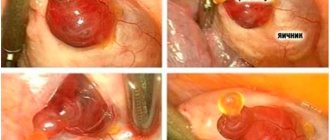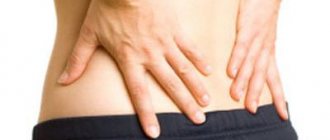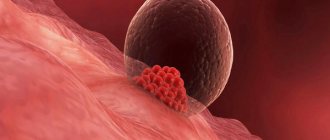Not all couples are able to conceive a baby quickly. For many, this takes from six months to a year. It is believed that future parents should lead a healthy lifestyle, including not drinking alcohol. In this regard, you need to understand how alcohol affects ovulation. It is believed that all toxins can be eliminated before pregnancy. However, alcohol consumed by both partners can negatively affect not ovulation, but the activity of a man’s sperm.
Ovulation concept
The fertile period lasts for several days. It is at this time that there is the greatest likelihood of conceiving a baby. Fertilization itself occurs when an egg is released and travels through the fallopian tube.
Usually this process is fixed in the middle of the menstrual cycle. If it is 28 days, then the follicle will burst on the 14th day. In general, when a girl is born, thousands of eggs are laid in her, but only a portion of them survive until she reaches puberty.
The female cell itself develops in a capsule with liquid called a follicle. When it bursts, ladies often see transparent discharge, indicating the onset of the middle of the MC. It is most likely to conceive a child two days before, immediately at the moment the egg is released and during the next 24 hours.
Is it possible to drink in the first phase of the cycle?
At first glance, it seems that alcohol and ovulation are two incompatible concepts. At the same time, drinking wine or other alcoholic beverages of similar strength will not affect this process in any way if it occurs in moderation and a few days before it. Sometimes drinking alcohol can even speed it up.
If we talk about the potential impact on pregnancy, then there is no need to worry about this aspect either. All toxins will be eliminated from the body before the embryo attaches to the endometrium.
During ovulation
Is it possible to drink alcohol during ovulation? The answer to this question will be given below. To do this, it is worth considering the effect of alcohol on ovulation. It is believed that if it is used in the middle of the cycle, there will be no consequences. The thing is that the egg is gradually leaving the burst shell, that is, it is completely independent of the female body. There is no interaction with blood. Consequently, harmful substances do not directly affect the new cell.
After successful conception, the fertile egg exists independently for some period of time. Only then does it attach to the mother’s blood and begin to receive nutrition and oxygen.
However, the results of research conducted by scientists say that even when there is no connection between the embryo and the expectant mother in terms of physiology, drinking alcohol can still affect the fetus. In particular, the risk of miscarriage increases as the tone of the uterus and the ability of muscles to contract decreases.
Comments
- Megan92 () 2 weeks ago
Has anyone succeeded in ridding their husband of alcoholism? My drink never stops, I don’t know what to do anymore ((I was thinking about getting a divorce, but I don’t want to leave the child without a father, and I feel sorry for my husband, he’s a great person when he doesn’t drink
Daria () 2 weeks ago
I have already tried so many things, and only after reading this article, I was able to wean my husband off alcohol; now he doesn’t drink at all, even on holidays.
Megan92 () 13 days ago
Daria () 12 days ago
Megan92, that’s what I wrote in my first comment) I’ll duplicate it just in case - link to the article.
Sonya 10 days ago
Isn't this a scam? Why do they sell on the Internet?
Yulek26 (Tver) 10 days ago
Sonya, what country do you live in? They sell it on the Internet because stores and pharmacies charge outrageous markups. In addition, payment is only after receipt, that is, they first looked, checked and only then paid. And now everything is sold on the Internet - from clothes to TVs and furniture.
Editor's response 10 days ago
Sonya, hello. This drug for the treatment of alcohol dependence is indeed not sold through pharmacy chains and retail stores in order to avoid inflated prices. Today you can only order on the official website. Be healthy!
Sonya 10 days ago
I apologize, I didn’t notice the information about cash on delivery at first. Then everything is fine if payment is made upon receipt.
Margo (Ulyanovsk) 8 days ago
Has anyone tried traditional methods to get rid of alcoholism? My father drinks, I can’t influence him in any way ((
Andrey () A week ago
I haven’t tried any folk remedies, my father-in-law still drinks and drinks
Ekaterina A week ago
I tried to give my husband a decoction of bay leaves (she said it was good for the heart), but within an hour he left with the men to drink. I no longer believe in these folk methods...
Many people drink beer without even thinking about the consequences. But this is not such a harmless drink, especially in large quantities. Particular attention should be paid to this issue if you are planning to conceive a child. The health of the unborn baby depends on this.
Effect on conception
It is believed that any alcohol consumption during the menstrual cycle will certainly affect future pregnancy. All this is connected with the processes that occur in the body. In men, sperm are usually completely renewed in about two months, but in the case of women the situation is different.
A set of eggs is laid directly at the stage of intrauterine development. They leave the body as the follicular capsules develop. That is, new eggs are no longer formed throughout a woman’s life.
When the cell is still in the follicle, it is more vulnerable, so toxins can negatively affect it. She comes out changed. This can lead to a number of consequences:
- difficulty in conceiving, since fertilization itself is difficult;
- the birth of a baby with pathologies;
- difficult pregnancy.
Naturally, this influence is not very critical. Not all children conceived when their parents consumed alcohol in moderate quantities are born with any diseases, but this factor should not be excluded. If a woman drinks alcohol for a long period of time, then this will undoubtedly affect the child. As for a single use, the effect will be minimal.
It is important to clearly understand that we are talking about those products that have a natural composition. That is, we mean low-proof alcohol. Wine or champagne also contains dyes and impurities, which can negatively affect pregnancy.
Which alcohol is the most dangerous?
Before conceiving, it is recommended to abstain from any type of alcohol, including beer. The risk of various problems especially increases if the partners drank strong alcohol the day before.
Variety of alcoholic drinks
The following drinks are considered the most harmful and dangerous before conception:
- Whiskey. To achieve a characteristic taste, various components are added to the drink, and in addition to them, it contains fusel oils, acetals (ethers), and diacetyl. Most of these substances are moderately toxic, so consuming whiskey before conception can have a detrimental effect on the functioning of internal organs and systems.
- Cognac. The drink contains about 450 esters, acetals, various carboxyl and phenolic compounds, as well as higher alcohols. During the maturation of cognac alcohol in oak barrels, tannins, furfural, and lignin appear in it. More than 50% of these components are slightly toxic and can therefore cause difficulties with conception.
Drinking alcohol before conception is not recommended not only for women, but also for men. If a man drank alcohol the day before, ethyl alcohol will in any case penetrate into the seminal fluid, which will cause modification of the germ cells. As for the female body, if a woman did not take alcohol during the follicular phase of the cycle, then a small amount of it during conception will not affect the condition of the egg in any way.
But it is worth considering that drinking can negatively affect the process of egg division and its movement through the fallopian tube after contact with sperm. This is why drinking alcohol before conception often causes ectopic pregnancy, miscarriage, and detachment of the fertilized egg.
We suggest you read: Can you drink alcohol while taking metronidazole?
Even if a woman is able to carry and give birth to a child, drinking alcohol before conception increases the risk of the following pathologies in the baby:
- weight deficiency;
- weakened immune system;
- hyperactivity;
- insomnia;
- frequent headaches;
- low vitality.
If partners drank before conceiving a child, the risk of more dangerous consequences cannot be ruled out. Such children may have dementia or physical deformities, which are extremely difficult to correct.
Since men's health is very important for conceiving a healthy baby, drinking alcohol before such an important task is strictly not recommended. This is due to the fact that the composition of sperm directly affects the health and vitality of the unborn child. Toxins present in alcohol negatively affect all organs and systems of the body.
Negative impact on male reproductive function
They also destroy male reproductive cells and impair sperm motility. If most of the sperm are inactive, conception may not happen. It is worth considering that normally every man initially has about 35% abnormal sperm. That is why a drinking man is much less likely to have offspring.
But even if conception occurs, you need to remember that the toxins contained in alcohol change the DNA of sperm, causing them to carry damaged genetic code. It is impossible to predict how this will affect the child. At best, the newborn will simply have poor health, and at worst, physical abnormalities, Down syndrome, cerebral palsy, and pathologies of internal organs.
It is also worth considering that regular drinking of alcohol impairs potency and leads to hormonal imbalance. The risk of its development is especially high in men who regularly drink beer. If you constantly drink a foamy drink, testosterone production decreases, and estrogen content, on the contrary, increases. As a result, a man's libido decreases greatly, and his body begins to change into a female type.
We suggest you read: What is better to drink tea or coffee when you have a hangover?
https://www.youtube.com/watch?v=Csa35Jev_cM
Due to physiological characteristics, the female body is even more susceptible to alcohol than the male body. After drinking several glasses, the fair sex gets drunk much faster, and the remaining ethyl alcohol takes longer to be eliminated from the body. Regular consumption of strong drinks can provoke the development of the following disorders:
- irregular menstrual cycle accompanied by severe pain;
- early menopause;
- difficulties with bearing a child;
- high risk of ectopic pregnancy;
- problematic childbirth;
- infertility.
The number of ovarian follicles in women is limited and does not change throughout life. If a follicle damaged by toxins matures into an egg and it is the egg that is fertilized, there is a risk of giving birth to a baby with serious pathologies.
Causes fetal pathologies
On a note! Unlike males, female reproductive cells do not have the ability to renew themselves, so representatives of the fair sex should not drink alcohol not only during the period of planning a child, but also give up alcohol altogether.
Nowadays there is quite a wide variety of drinks in stores, both alcoholic and low-alcohol. A small number of degrees on the label can give false confidence to the expectant mother that drinking a glass of beer will not harm the child. But only a few know that a bottle of beer is equal to 50 g of vodka.
Beer is a low-alcohol drink that is produced as a result of alcoholic fermentation using brewer's yeast, most often using hops. The ethyl alcohol content in most beers is about 3.0-6.0%. An important and harmful component in beer is hops - in its fruits it contains a phytohormone that can cause hormonal infertility.
Beer contains phytohormone
At first glance, it seems that these doses are minimal, but frequent consumption of beer, even in small quantities, contributes to the accumulation of the phytohormone. This hormone reduces testosterone levels in men, which can lead to a decrease in the chances of a healthy woman getting pregnant from such a beer drinker.
The phytohormone affects not only men, but also women. When its level increases, pathological changes occur in the body - the mucous membrane of the uterus thickens several times, which reduces the chances of a successful pregnancy.
Even kefir and sweets with liqueur are alcoholic, let alone beer: so-called non-alcoholic beer contains 0.5-1.5% alcohol. And even such a tiny, at first glance, percentage should worry future parents, because the child’s body in the mother’s belly is more vulnerable than the adult’s body and the placenta is not able to protect it from all dangers from the outside.
We suggest you read: Is it better to drink vodka or whiskey?
Non-alcoholic beer is contraindicated for pregnant women
It is also important that non-alcoholic beer contains a large number of harmful additives. Thus, cobalt is used as a foam stabilizer, which is very toxic to the body of both mother and child. Its content in beer exceeds the norm by almost 10 times than what is permissible for humans.
Reasons why drinking non-alcoholic beer is contraindicated for a pregnant woman:
- long shelf life of this drink due to various preservatives in its composition
- diuretic effect, which is very undesirable for expectant mothers
- cobalt in beer causes inflammation in the esophagus and stomach
- Frequent use increases the risk of cancer
Non-alcoholic beer during pregnancy is harmful to both mother and child
https://www.youtube.com/watch?v=Ww7DlNWJ4Hw
All these extremely harmful nuances will negatively affect the health of the mother and child, and even a one-time use of such an explosive mixture of preservatives and stabilizers can lead to permanent consequences.
Advice for the expectant mother
If it happened that at the time of open sex the future parents were drunk, then you should not immediately panic. When appropriate drinks are drunk on isolated occasions, the likelihood that an unhealthy baby will be born is minimal.
First of all, you need to go to the antenatal clinic and tell your doctor about everything. Perhaps he will prescribe a certain set of additional examinations.
By following all the specialist’s recommendations, there is a chance of bearing an absolutely healthy son or daughter. Mandatory vitamins containing folic acid and iron. This is exactly what is necessary for the normal course of intrauterine development of the fetus. It is important to eat properly, spend as much time as possible outdoors and avoid excessive physical activity.
conclusions
The question of how alcohol affects ovulation can be answered in different ways. If this is a single consumption of alcohol in small quantities, then this will not affect the release of the egg. When an expectant mother regularly drinks alcohol, its effect on ovulation and fetal development will be negative.
It is known that one of the most important aspects when planning pregnancy is for parents to give up bad habits, in particular, drinking alcohol. It is known that alcohol intoxication of one or both parents can have an extremely negative impact on the unborn child. Moreover, when a woman consumes such drinks, the negative impact on the fetus is usually higher. Why does this happen and how are alcohol and the maturation process of the germ cell related in this case?
Effect on women's health
Women have to hear all their lives that they should not abuse alcohol, otherwise they will not be able to give birth to a healthy child. And this is true. Indeed, the chance of carrying and giving birth to a healthy baby is significantly reduced. Of course, there are cases when an alcoholic successfully became pregnant and gave birth to a full-fledged child. However, these are isolated situations and can be called luck rather than commonplace. Therefore, expectant mothers should not drink beer.
What is the best time to give up alcohol? At least a year before conception is expected to occur. Drinking alcohol really has a strong effect on women's health, and some changes are irreversible. Therefore, the sooner you get rid of a bad habit, the better.
Alcohol leads to hormonal imbalance, which in turn can cause infertility. Ethanol also increases the likelihood of cancer, including the female part.
Hot drinks can disrupt the menstrual cycle, which reduces the likelihood of fertilization. Also, the negative effect extends to the eggs, and this cannot be corrected in any way. Therefore, women who abuse alcohol often give birth to children with weak immunity and congenital pathologies.
Can I use it during ovulation?
Does alcohol affect the process of maturation and release of eggs from the follicles, if it is already happening? Is it possible to drink alcohol during ovulation, and what effect will this have on the body? If alcoholic beverages drunk a few days before its onset are still capable of having any effect on the body, the likelihood of conception and potential pregnancy, then if consumed during the period when ovulation is already underway, there will be no effect at all.
This is due to the fact that the egg has already left the follicle, that is, at the moment it is completely autonomous from the woman’s body in a biochemical sense and has no connection with her blood. Thus, toxins from alcohol cannot affect the cell. Even after conception, the fertilized egg also remains autonomous from the maternal body for some time, and if pregnancy occurs, then there is a possibility that the ethyl components will be excreted from the body before the fertilized egg attaches and begins to interact directly with the maternal blood, receiving from it oxygen, nutrition.
However, there are studies showing that even when there is no physiological connection between the woman and the embryo, alcohol can still harm the pregnancy. This occurs because the risk of spontaneous abortion increases due to changes in contractility and muscle tone of the uterus.
Effect of alcohol
How exactly does alcohol directly affect ovulation, and what physiological processes does it stimulate? To do this, you need to understand what ovulation is. The ovaries contain follicles that can mature. If the ovary matures, then the egg may begin to mature in it. Fluid accumulates around it in the follicle, which is something like a capsule. At the moment when the egg has finally matured, enough fluid accumulates in the follicle so that it can burst and the egg can be released into the fallopian tube, and then into the uterine cavity, where fertilization can occur.
It is the process of the release of an egg from the follicle during its rupture that is called ovulation. It occurs for natural reasons, that is, under the influence of mechanical pressure of the liquid inside. But some biochemical processes can speed up this process. In particular, rupture of the follicle is provoked by certain chemicals in the blood. Including those contained in alcohol. Thus, drinking alcohol a few days before the expected maturation of the egg accelerates the process of ovulation.
Of course, this process is not entirely probable. Depending on the characteristics of the body of each individual woman, such drinks may have a more or less positive effect on the process of release of germ cells into the uterus. Therefore, you should not rely on it at the pregnancy planning stage, when it is necessary to “push up” ovulation by several days.
Effect on possible pregnancy
Any alcohol consumption by a woman, at any time during the menstrual cycle, affects a possible pregnancy. This is due to quite complex processes occurring in the reproductive system. If in men complete renewal of sperm occurs within two months (that is, drinking alcohol three months before conception will not have any effect on the child), then in women this is not the case. Even at the stage of intrauterine development, a complete set of germ cells is laid down, which, as the follicles mature, also mature and leave the body.
How does beer affect male reproductive cells?
The intoxicating drink contains alcohol, which negatively affects all organs and systems of the human body. The liver, kidneys, cardiovascular, nervous system and, of course, the sexual function of men suffer.
As a result of alcohol consumption, the number of germ cells decreases and their activity decreases. Accordingly, conception of a child may not occur. In addition, various genetic disorders arise that lead to pathologies and deformities of the fetus.
According to statistics, men and women suffering from alcoholism very often give birth to children with physical and mental disabilities. Unfortunately, this does not stop lovers of alcoholic beverages, and the health of the unborn child is at risk.
Conception while intoxicated
Everyone knows about the harmful effects of alcohol on the intrauterine development of a child. But some couples, being intoxicated, forget about precautions. As a result, pregnancy becomes a surprise. To prevent this from happening, you need to control the amount you drink.
Previously, it was believed that alcohol before conception had a negative effect only on female cells. But recent studies have shown that the quality of male seminal fluid also suffers from alcohol. First of all, a bad habit affects a man’s sexual abilities. In addition, stagnant processes form in the pelvis, which affects the functioning of the reproductive organs.
Conceiving a child while intoxicated leads to complications in the development of the fetus. Even if the problem did not make itself felt at the birth of the child, it can manifest itself in adulthood. Therefore, allowing drunken conception is strictly prohibited.
Is it okay to drink alcohol when planning a pregnancy?
Men who lead a healthy lifestyle are more likely to conceive a child. Alcohol abuse reduces reproductive function. Once in the body, alcohol is quickly absorbed into the blood and released into all fluids. Toxic substances make the body more vulnerable to external influences. Therefore, there is an exacerbation of chronic diseases. Alcohol reduces blood clotting. This can lead to stagnant processes that transform into prostatitis.
If a man drinks alcohol before conception, sperm become less mobile and their life expectancy is reduced.
The number of defective sperm in the seminal fluid increases. Long-term alcohol consumption reduces the likelihood of becoming a father by 20%. In addition, addictions increase the chances of developing erectile dysfunction at a young age.
Conception and female alcoholism
For women, excessive drinking of beer is no less dangerous. Alcohol negatively affects all organs, including the reproductive system. Alcoholic drinks, and especially beer, can disrupt the body's hormonal levels. It is for this reason that difficulties in conceiving a child often arise.
"Drunken conception" and its consequences.
In addition, after prolonged use of alcohol, the female body wears out, organs and systems do not work at full capacity, and various diseases appear. And this seriously complicates the course of pregnancy. As a result, there is a threat of interruption, which very often ends in spontaneous miscarriage.
Excessive love for beer affects the process of childbirth itself. Quite often they are difficult with various complications, which threatens the health and life of the mother and child.
If a woman continues to drink beer in large quantities during pregnancy, the baby will be born with physical or mental abnormalities.
The effect of alcohol on a woman's body
The effects of alcohol on women are significantly worse than on men. The effect of alcohol on a woman’s eggs is detrimental to them, the quantity and quality of which are established during the period of intrauterine development. It is impossible to increase their number. The quality of oocytes can decrease under the influence of external factors. Alcohol is considered the most dangerous of them.
When drinking alcoholic beverages, the body is poisoned with toxins. They are deposited in all vital organs, having a negative impact on their functioning. The functioning of the epididymis slows down, and the DNA of the eggs is destroyed. The longer a woman drinks alcohol, the higher the likelihood of conceiving a sick child. Ethyl alcohol is especially dangerous for teenage girls. During this period, the formation of reproductive organs occurs.
Girls who drink alcohol during adolescence are more likely to experience infertility. Regular intake of toxins into the body provokes an increase in the number of anovulatory cycles. Because of this, the hormonal background changes. Bringing it back to normal is not easy. Therefore, it is important to prevent the toxin from entering the blood.
Toxic substances make changes to the genetic material, which can later lead to undesirable consequences. These include the following:
- fetal developmental delay;
- difficulty conceiving;
- genetic mutations;
- high risk of miscarriage.
Drinking alcoholic beverages can contribute to the fertilization of a weakened egg. In this case, the likelihood of an ectopic pregnancy increases. A weak embryo will not be able to reach the uterine cavity. It will have to attach to the tubes or ovaries. This condition is dangerous for a woman’s life.
The effect of alcohol on a pregnant woman is detrimental. Try to avoid consumption during pregnancy!
Why do you crave beer during pregnancy?
The expectant mother begins to control her diet more carefully, but every now and then the temptations that arise cause significant inconvenience. In particular. Many mothers are interested in whether it is possible to drink alcohol during pregnancy and whether this threatens the baby?
Alcohol use during pregnancy
In Rus', drinking alcoholic beverages at a wedding and before the wedding night was strictly forbidden. Our ancestors reasoned that it was on the first wedding night that there was a chance of conceiving a child and fun with alcohol could damage the baby’s health. Since ancient times, the health of mother and child has been worth its weight in gold.
Today, doctors are just as clear in their words about the dangers of alcohol, arguing that even a small amount drunk can be harmful to a baby. Despite this, some women consider it acceptable to drink alcohol and often pay for such liberties to innocent children who are born disabled or die in the womb.
During pregnancy, a woman develops new taste preferences. Often women who previously could not stand even the smell of alcohol now dream of a glass of intoxicating alcohol. And it is very important to understand in time the reason for such a harmful desire and replace it with something more useful.
Brewer's yeast contains a large amount of B vitamins
The most common explanation for the thirst for beer in expectant mothers is a lack of B vitamins. This vitamin is present in sufficient quantities in brewer's yeast, but this does not mean that it is necessary to drink beer during pregnancy.
It is better to compensate for vitamin deficiencies with healthier foods, for example, increase consumption:
- carrots
- greenery
- bananas
- fish
- meat and liver
- eggs
- porridge and legumes
Carrots will help fill vitamin deficiencies
How much should you not drink before conceiving?
Couples thinking about the health of their future children should separate alcohol and conception. How much should a man drink before conceiving - doctors recommend giving up bad habits 3 months before planning a pregnancy. This is exactly how long it will take to completely renew the seminal fluid.
It is advisable for women not to abuse alcohol at all. While alcohol in small quantities has a calming effect on the nervous system, if consumed in excess it can cause irreparable harm. It is especially important to give up alcohol-containing drinks in the second half of the cycle. During this period, the embryo is attached. A woman may not know about conception, but at the same time harm the health of the unborn child.
The permissible dose of alcohol per week is 200 ml of wine or 50 ml of vodka. But at the stage of pregnancy planning, this amount can have a detrimental effect on the fetus.
Alcoholic drinks during IVF
During the in vitro fertilization protocol, drinking alcohol, including beer, wine, and champagne, is not recommended. A woman’s body, under the influence of hormones, works hard to produce high-quality oocytes in sufficient quantities. In addition, the drugs used in the protocol (Gonal F, Puregon, Clomid, Menopur, Pregnil and others) have a toxic effect on the liver. If you additionally take alcohol, you will not be able to avoid problems with this organ in the future.
The concepts of IVF and alcohol are incompatible. Infertility requires a responsible approach to treatment. Theoretically, after follicle puncture, you can drink alcohol before embryo transfer. During this period, the germ cells are outside the woman’s body. However, no one can guarantee that alcohol will not affect the result of in vitro fertilization.
Consequences of drunken conception
Drunken conception increases the risk of developing pathological processes in the child's body. The accumulation of toxic substances leads to the fact that the baby does not receive the required amount of nutrients. As a result, the process of formation of internal organs is disrupted. In this case, fetal developmental delay is often diagnosed. Other possible pathologies include:
- fetal alcohol syndrome;
- Down syndrome;
- anatomical abnormalities;
- Edwards syndrome.
Down syndrome
Edwards syndrome
The most common complication is fetal alcohol syndrome. It includes a number of developmental disabilities. The diagnosis is made immediately after the birth of the child. Signs of pathology include:
- impaired functioning of internal organs;
- deficiency of body weight and height;
- pathologies of visual and auditory functions;
- mental retardation.
Conceiving while intoxicated leads to the fact that the child will develop more difficult than his peers. As a result, problems arise with memory and perception of educational material. In severe cases, against the background of fetal syndrome, the child becomes disabled.
If a man drank before conception, there is no need to panic.
Timely abstinence from alcoholic beverages and taking vitamin supplements can reduce the risk of complications. It is equally important to monitor your diet and quit smoking. The health of their child directly depends on the degree of parental responsibility. You need to think about this long before planning a pregnancy.











